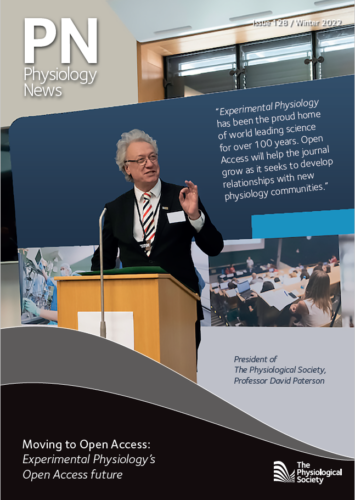
Physiology News Magazine
Thank you to our community of members who have always inspired me during my Presidency, and farewell
President’s View
Introduction
Thank you to our community of members who have always inspired me during my Presidency, and farewell
President’s View
Introduction
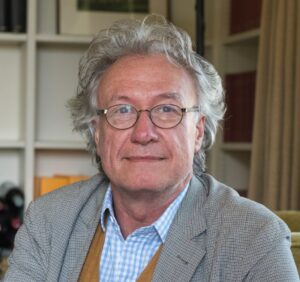
Professor David Paterson
President, The Physiological Society
As my term as the President of The Physiological Society draws to an end, I thought it would be timely to reflect on the progress we have made over the last two years.
When I began my Presidency I outlined how my tenure would be defined by three words: visibility, inclusivity and sustainability.
Visibility
In recent years the discipline of physiology has faced challenges around reducing recognition, as illustrated by the decline of physiology departments in the UK and the US. To respond to this, I have worked with the Board of Trustees and the Senior Management Team to raise the visibility of The Society within institutions as well as the discipline more broadly.
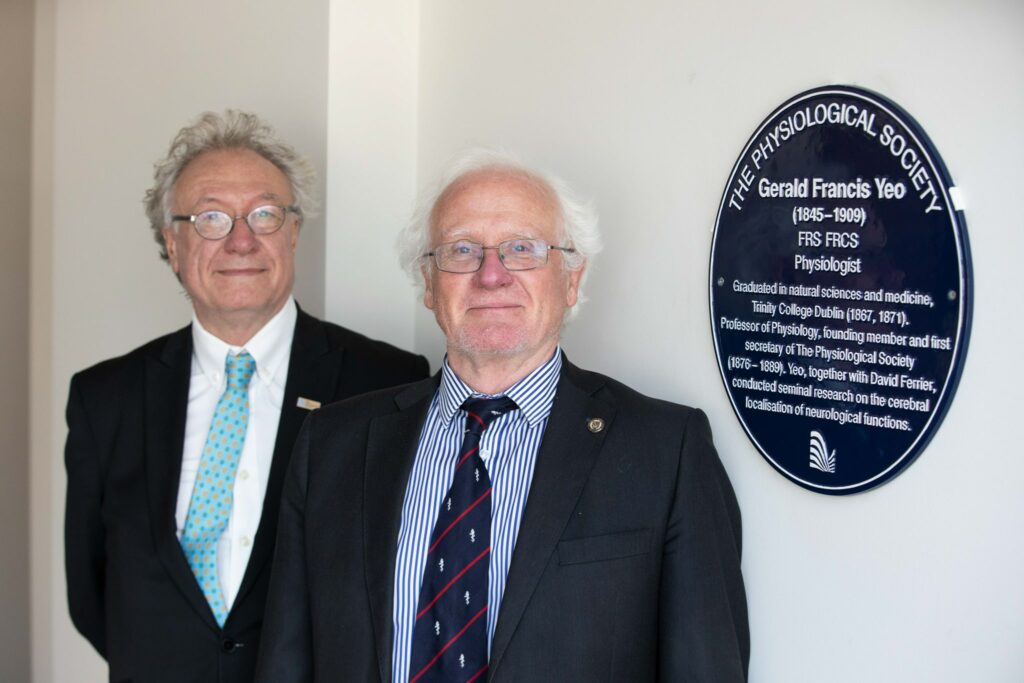
My term began during the height of the COVID-19 pandemic. COVID-19 highlighted the real-world relevance of physiological research, with the multi-organ disease showcasing the unique role that physiologists play in understanding how organ systems communicate in pathophysiological states.
The pandemic saw The Society adapt successfully to the online environment, supporting members and holding conferences to ensure physiologists were supported during this difficult period. This included our “Questions from the Frontline” initiative and our webinar on returning to the lab; such initiatives showcased how The Society can respond rapidly to changing circumstances.
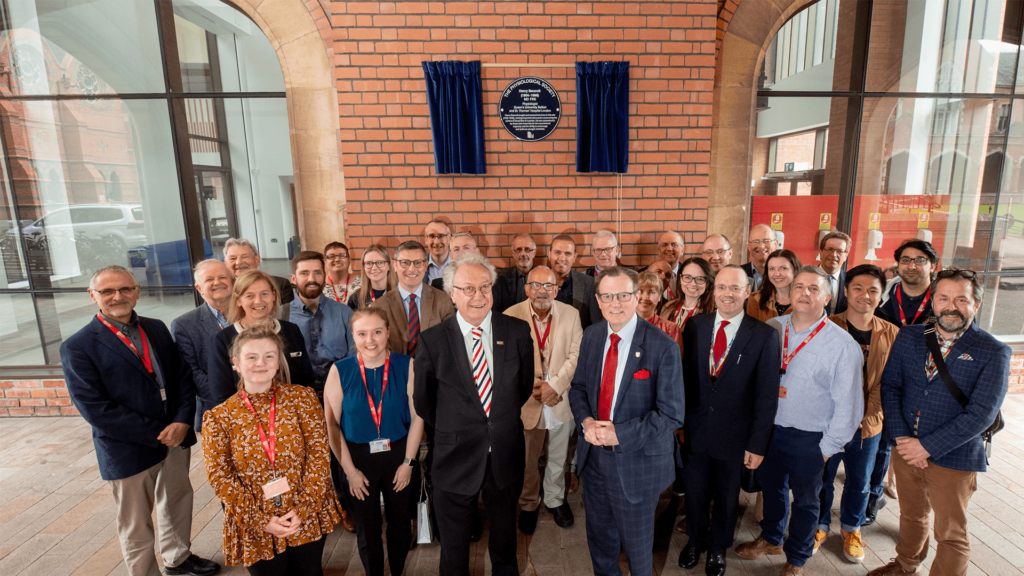
The success of Questions and then Answers from the front line highlighted to Trustees the importance of physiologists and clinicians coming together to enrich one another’s fields. Consequently, The Society’s first ever clinical Trustee will join the Board in December.
As soon as lockdowns lifted, The Society hit the road to raise the visibility of physiology with senior leadership at institutions across the UK and Ireland, touring our Board meetings and roadshows to meet our members.
Whilst moving The Society forward is key to maintaining relevance, it is important to acknowledge our heritage and to build on this distinguished past. We launched The Society’s Blue Plaque scheme last year, which honours outstanding physiologists who have contributed to the advancement of the discipline through their discoveries while leaving a legacy beyond their lifetime. By the end of this year, we will have established 15 Blue Plaques at institutions right across the UK and Republic of Ireland, including Sir Charles Sherrington at Liverpool and Oxford, Professor Mary Pickford in Edinburgh, Professor Henry Barcroft in Belfast, Professor Gerald Francis Yeo in Dublin and Professor Thomas Graham Brown in Cardiff. The full list with photos of the plaques and unveiling ceremonies is on our website.
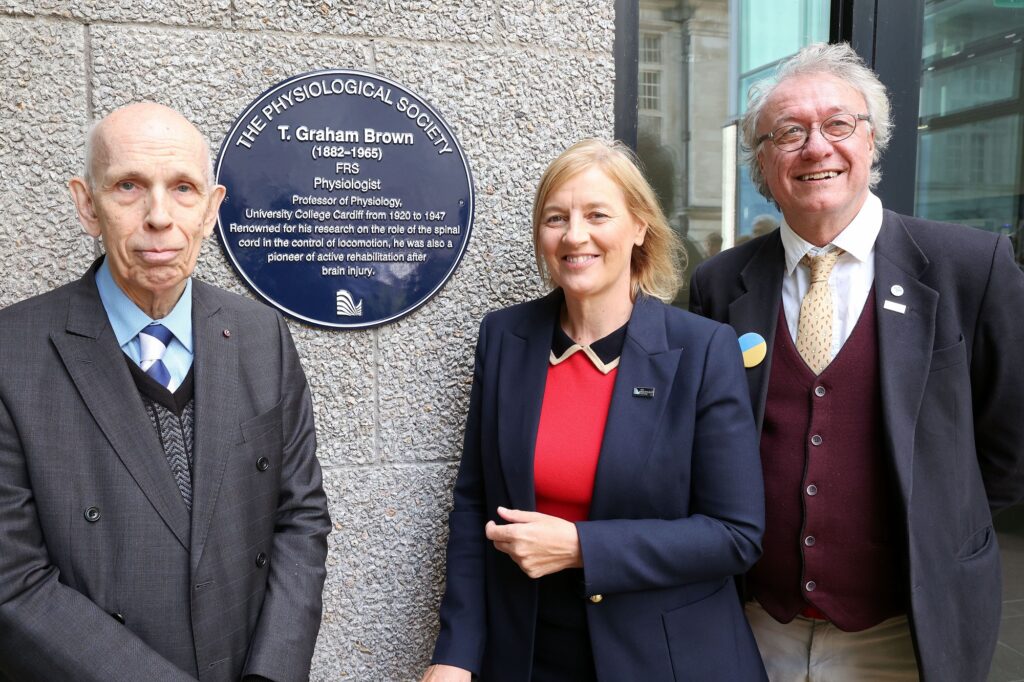
Our in-person President’s Lectures have attracted significant attention, with NASA astronaut Jessica Meir giving 2021’s and Sir Patrick Vallance delivering this year’s. It has become an established high-profile opportunity to put physiology on the map raising the profile of the discipline with key stakeholders such as policymakers.
Physiology is a discovery science and is at the heart of tackling global challenges, therefore the work physiologists undertake in assembling physiological processes at the molecular, cellular, tissue and systems level of organisation has never been more important. Through an ongoing series of reports and projects we raise the visibility of physiology among policymakers, government, and funding organisations. This includes our recent report into physiology education, which found that physiology teaching delivers £22.6 billion to the UK economy every year and was launched at an event in Parliament where 100 physiologists met MPs and civil servants. We have also worked with Wellcome Trust and the Lancet Countdown for Health on a “Climate Change and Health Summit”, supporting Wellcome in delivery of their new grant schemes in this area. Our most recent report, focused on healthy ageing and the workplace, was launched at the start of November in Parliament.
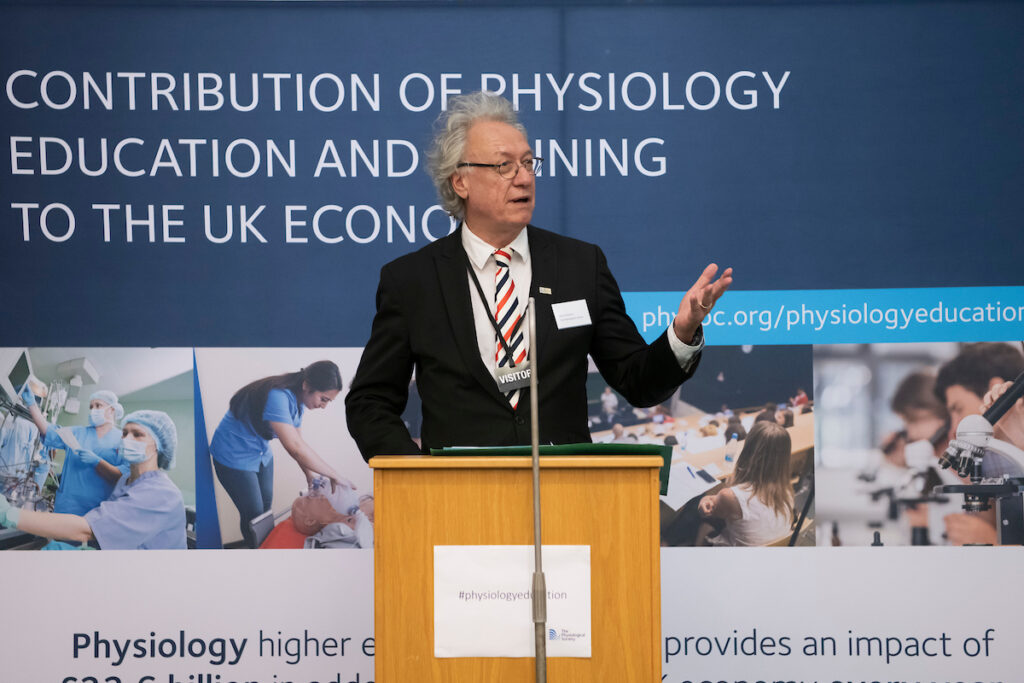
Inclusivity
Our research communities must become more inclusive of a wider range of voices and perspectives and all of us involved in science have a responsibility to redouble efforts to promote diversity. Our new strategy has Equity, Diversity and Inclusion (EDI) at its heart, and our EDI Taskforce have worked with an expert consultant to develop our new EDI Roadmap. This Roadmap focuses on a 4-point plan with measurable KPIs that addresses the five biggest barriers to inclusion and diversity
- Lack of self-awareness
- Biased development opportunities
- Lack of role models
- Low cognitive diversity
- Fear of making mistakes
Sustainability
Our sustainability strand has been focused on the future of The Society and the discipline, as well as the health of the world in which we live.
The environment in which The Society and our members operate is perhaps the most uncertain it has ever been. With Open Access leading to changes in our funding model and higher education systems under strain, we have been undertaking work to ensure The Society is sustainable for the future. The recent flip of Experimental Physiology to Open Access is an exciting step in the journal’s 100-year history and shows our commitment to the Open Science agenda.
Finally, we have recently launched our new Sustainability Policy, which seeks to reduce The Society’s impact on the environment but considering how we operate and manage our activities. The policy can be found here: physoc.org/about-us/board-of-trustees/governance-reference/the-physiological-societys-sustainability-policy/
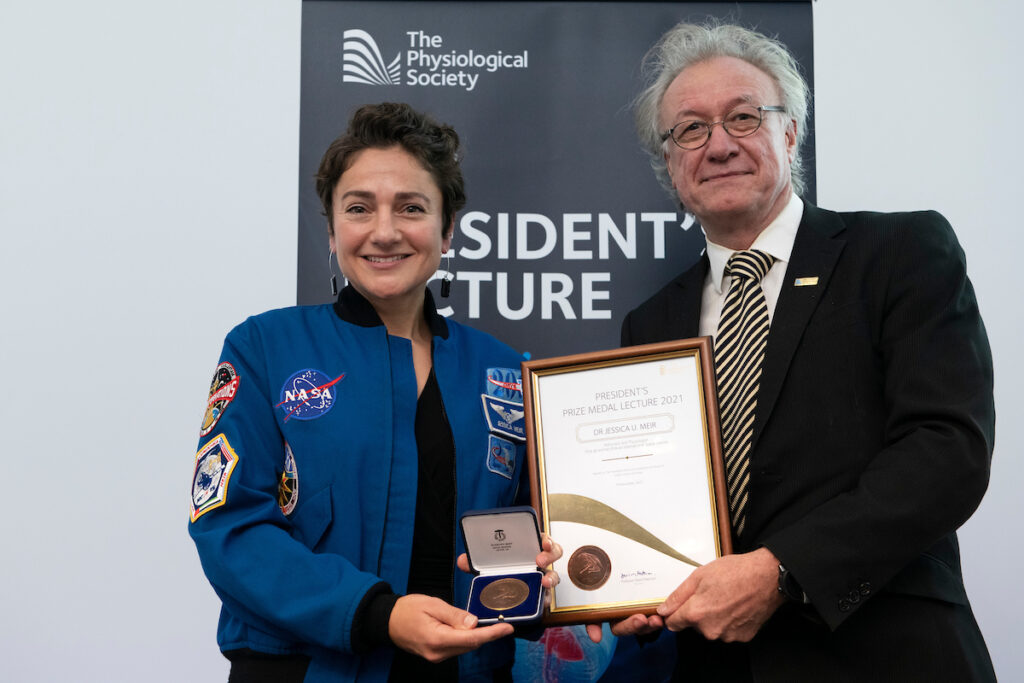
Next steps
While as an organisation we have never stood still, the pace of change in the world around us is now greater than ever and demands a step change in how we operate to meet the challenges we will face.
It is for that reason that I am delighted that the Board has agreed The Society’s new strategy to guide us through the next five years. For more about our new Strategy see the report from the Chief Executive.
I have thoroughly enjoyed my time as Society President. Throughout it all I have been inspired by our community of members; while the world of 2022 looks very different to that of when we were founded in 1876, our core purpose as a community of physiologists who work together to support each other and advance the physiological sciences remains unchanged. I look forward to continuing to be a champion and ambassador for The Physiological Society from “the back benches”, as it continues to go from strength to strength under our new President, David Attwell FRS. Finally, I would like to thank the professional staff at The Society for their dedication and hard work. It has been a pleasure and an honour to work with you.
